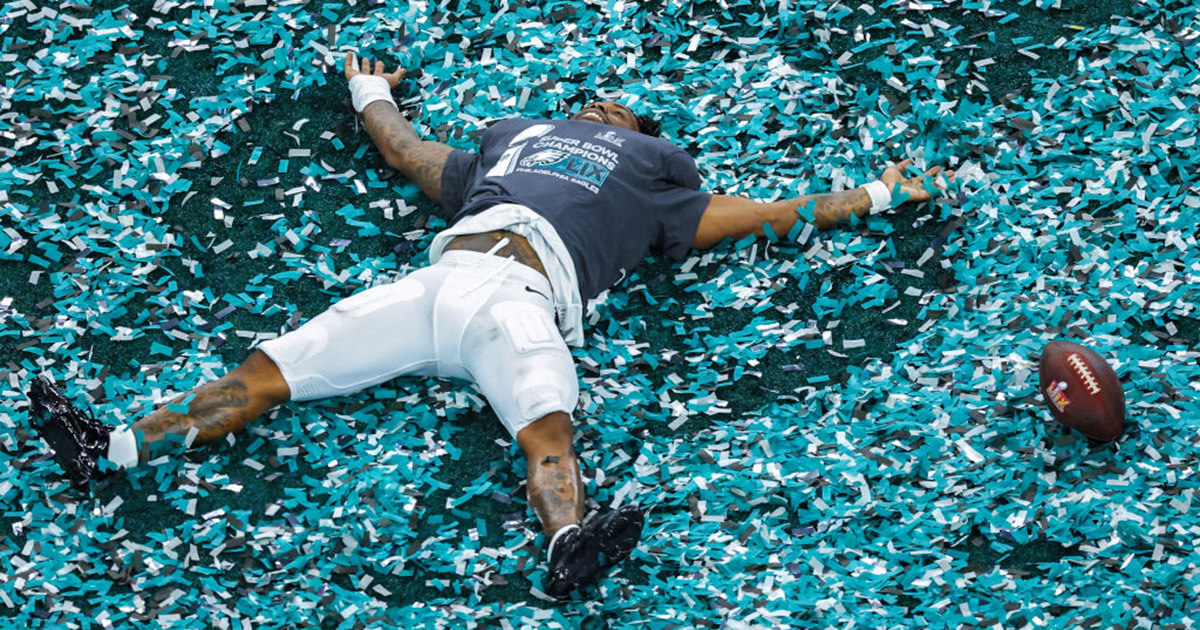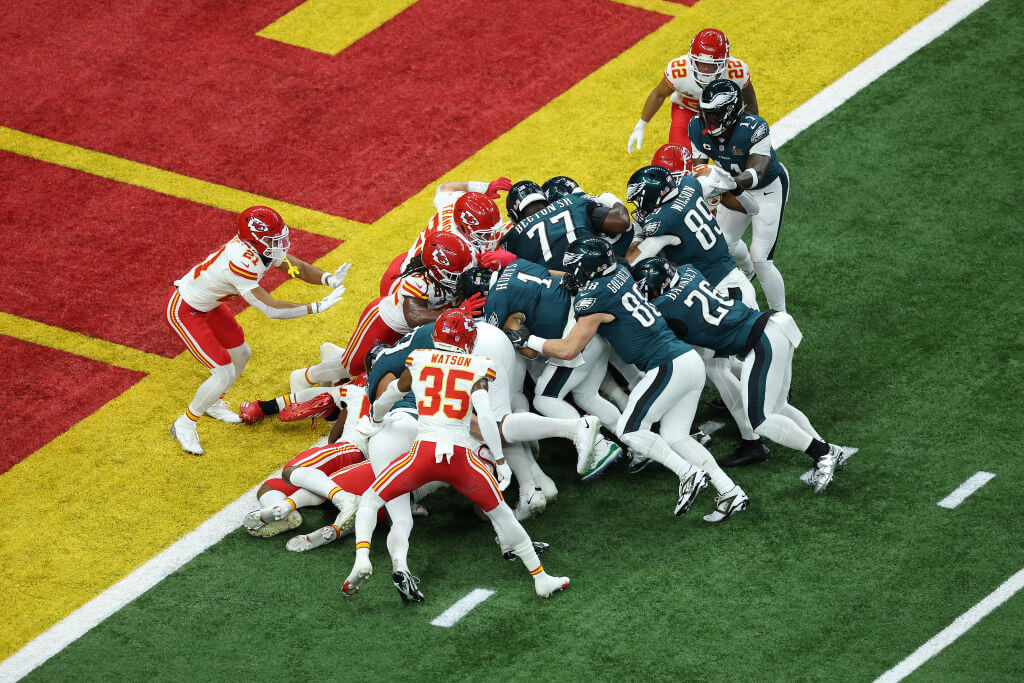The college is Christian. Its point guard wears a yarmulke.
Playing basketball in an Orthodox Jewish desert hasn’t always been easy for Ze’ev Remer. That was kind of the idea.
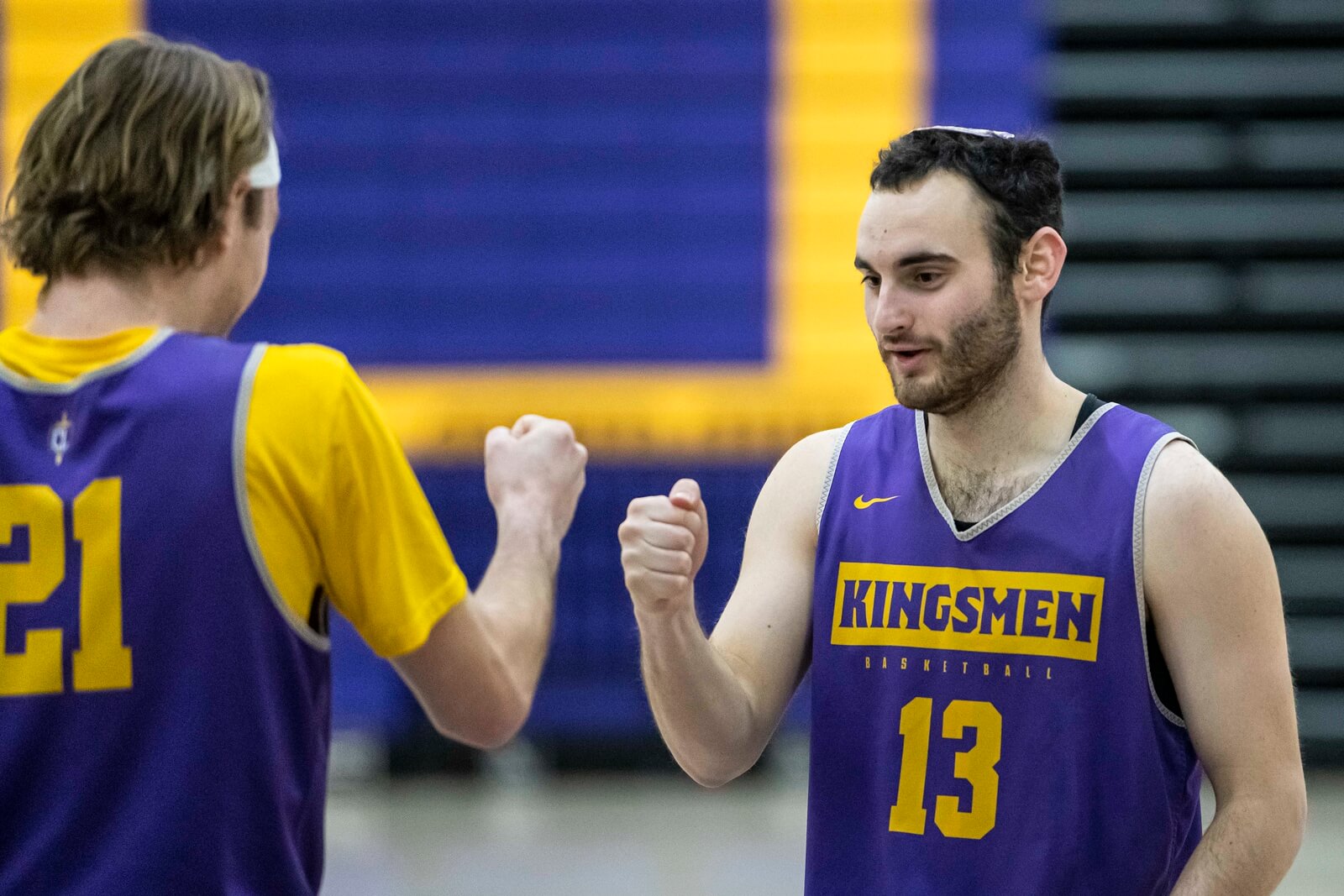
Ze’ev Remer doesn’t know of any other Orthodox Jews at California Lutheran University. “It’s an opportunity to change people’s minds and have them learn a little bit,” he says. Photo by Jon Putman for the Forward
For aspiring college basketball players who want to maintain their Shabbat observance, Yeshiva University has long been the obvious destination.
But when Ze’ev Remer was a senior in high school, the most compelling pitch came from a radically different source. Not only did this school play on Saturdays, but it didn’t even have a campus Hillel, let alone a kosher meal plan. And then there was its name.
California Lutheran University, which like Yeshiva plays in NCAA Division III, was a school and a team where Remer, who grew up Orthodox and rocks a hand-knit kippah on and off the court, would always stick out. But it had recruited him the hardest. And it was only an hour’s drive away from Los Angeles, meaning his family could go to games.
He had to admit, too, that there was something undeniably interesting about being the only Jew in the squad. At Cal Lutheran, which is affiliated with the Evangelical Lutheran Church of America, he could show people what Orthodox Judaism was about.
“I thought to myself, if I were in a religious place where I was comfortable, what would I be accomplishing there?” Remer, 20, said in an interview from the school’s campus in Thousand Oaks. “If you just continue being stuck in an echo chamber, in Jewish day schools and with Jewish friends, you’re never gonna reach out and educate other people.”
For years, Orthodox high schools across the country have been constructing gyms, hiring deep coaching staffs, and building winners on the belief that sports — especially basketball — could boost school spirit and alumni relations, and serve as a potent vector of cultural transmission. But their efforts hinge on friendly competition with secular opponents. Remer, who graduated from one of those schools, is part of a small group of Orthodox athletes on an audacious new frontier: playing for the other team.
As they get to know their freshman point guard, Remer’s coaches and teammates have learned what people like him can’t eat (Chipotle, Starburst), what they can’t do on Saturdays (ride in cars, reply to texts), and — because it’s the main thing they want to know — how they keep that thing on their head (bobby pins, hair). And Remer, alone in a desert of his own making, is finding out what his belief is truly worth.
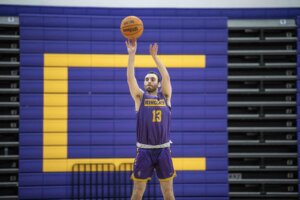
The lonely student-athlete of faith
Among Orthodox student-athletes at secular universities, Remer has chosen a particularly non-Jewish environment. The student body of Washington University in St. Louis, where Yogi Oliff plays basketball, is about one-quarter Jewish. At Texas A&M, where Sam Salz wears a yarmulke under his football helmet, there’s an 18,000-square-foot Hillel. And though Wake Forest, where Elie Kligman plays catcher, isn’t known for a thriving Jewish scene, its Hillel touts a mailing list of a few hundred undergrads. (And there’s an AEPi fraternity.)
By contrast, Cal Lutheran (undergraduate enrollment around 2,500) not only lacks an Orthodox community, it has only a few dozen Jewish students total according to the university pastor — and judging by the curious glances Remer says he’s grown accustomed to around campus, many more who may have never seen a real, live Orthodox Jew before. Though the school tends to emphasize its diversity more than its Lutheranism, its leadership takes pride in its Christian roots. During a weekly “chapel hour” most campus facilities close, and the chapel itself — a strikingly modern building that curves into a steeple — is a campus focal point.
Among Remer’s teammates, even those who had spent time around Jewish people knew little about them; in conversation, one said growing up he’d often seen Jewish people walking on Saturdays to, “er, what’s the church called?”
To acculturate the team to the player, head coach Russell White had Remer give the group a preseason explainer on Orthodox Judaism, which included primers on Shabbat, tzitzit and tefillin (which they might observe him wearing on overnight trips). Of course, the hardest thing for the non-Jewish Kingsmen to wrap their heads around was, and continues to be, the dietary restrictions.
“Someone was like, ‘Take half my candy bar,’” Remer recalled. “And it’s like, ‘Sorry, I can’t eat it — I just ate meat.’ They’re like, ‘What does that even mean?’”
Buoyed as he is by the novelty of these interactions, being the only Orthodox Jew on campus does get lonely. It might be convenient to have his parents deliver home cooked meals once a week, but in lieu of a kosher cafeteria, it isn’t ideal. He’s mindful enough of his roommates not to make cholent in his dorm; even if he did, would anyone share it with him?
Isolation has given Remer a lot of time to think about why he’s observing Orthodox Judaism to begin with. It’s also made him more devout.
“I see people who are close to God and people who aren’t,” he said. “The people I see who are closer to God, have more of a modest, respectful type of lifestyle, and I really appreciate that.
“In this situation, the only way for me to have that relationship with God is by being super strict on certain things. Like, I have to put on my tefillin every day. I have to pray. I don’t know if I was at YU, with a nice Jewish population, that I would have that same drive. Because there, I would just be another Jew. I wouldn’t feel like my yiddishkeit has to come from me.”
Away games
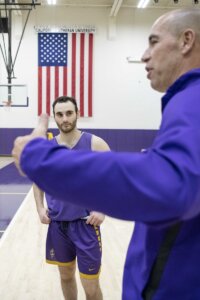
When White scouted Remer as a senior at Shalhevet High School, he liked what he saw. The sturdy, maybe-six-foot floor general took care of the ball and responded well to pressure. “Those tend to turn into pretty good players,” White said.
Remer was open to the idea of Cal Lutheran, but wanted to know how an Orthodox athlete would fit in. Over the phone, the two sketched out a rough plan. White said he would try to schedule Saturday home games after 7 p.m.; on the road, Remer would try to stay at a hotel walking distance from the gym.
“Being aware of the faith and the rules that are a part of that, I just wanted him to be comfortable,” White said of those conversations. “If he was comfortable, I wanted him to come play for us.”
Playing on Shabbat was not a difficult decision — he’d been doing that at public parks and in his parents’ backyard his whole life. When the Kingsmen do have a Shabbat game, Remer marks the day by sporting an all-white yarmulke and by not double-knotting his shoelaces (because doing so may constitute Sabbath-prohibited work).
Still, navigating the Jewish day of rest has proved challenging in a way this whole experiment was meant to: It forced him outside of his comfort zone, where he would have to make his own choices.
Push came to shove around a recent Saturday night game against University of Redlands — whose campus is about 100 miles east of Cal Lutheran’s. Remer felt unsure about the hotels in the area, and having recently gotten into a car crash, he didn’t want to make the long drive in the rain Friday afternoon. The team bus was leaving on Shabbat. He got on it.
When he was young, and dreaming of playing college basketball, he had considered this scenario. “If Shabbat was going to be an issue, I couldn’t really see that stopping me,” he said. “I’m obviously trying to be as machmir (stringent) as possible in everything I can, but I still have dreams and I still have ambitions, and I can’t let Judaism totally dictate everything I do in life.”
His teammates were curious, and he leveled with them — told them that technically, he was not supposed to be on this bus. And then he sat for two hours, with no electronics, alone with his thoughts, as the bus traversed the Los Angeles basin.
Eventually, he made peace: His religious journey was longer than this bus ride.
Against Redlands, in his first start for the Kingsmen, Remer scored 12 points, a season high.
“I just try to be as halachically correct as the situation I’m in,” Remer said, using the term that refers to Jewish law, “and try to keep in mind that it might not be in the best situation right now for Shabbat, but I know that it is Shabbat, and I know what Shabbat is.”

Handling the pressure, protecting the ball
Shalhevet’s old go-to guy gets only a few shots a game as a freshman. But if he’s only barely begun to make an on-court impression, Remer has already seen a small measure of validation for his college choice. Back when Kanye West’s antisemitic vitriol was dominating the news, one of his teammates asked him about it. Was it not true that the Jews, like, own Hollywood? Remer calmly disabused him.
“It was a learning moment for everybody,” he says now. “I don’t think that it meant to come out in a way of hate or anything. I think it was just: ‘I don’t know.’ Let’s learn.”
At the conclusion of each practice, White will gather the team in a circle and call on someone to lead the group in prayer. Remer normally refrains from responding to these invocations, which tend to be addressed to Jesus.
Until last week, when a reporter and photographer were in attendance, Remer had not been asked to lead one. Now he was.
Put on the spot, he waited a beat, unsure how to proceed. Then, head bowed, he ad-libbed: “Dear God, thank you for keeping us healthy and letting us play the game we love. We pray for Lojong” — an injured teammate — “and pray for anyone who needs to get better. Amen.”
Later, he said it had felt uncomfortable. “But — I don’t know — I don’t see anything wrong with it,” he added. “I appreciate that they do pray. As a religious person, I like that. It just felt a little too Christian.”
Recently, he’s given thought to a hypothetical: If he weren’t playing basketball, would he still go to school here? He’s come to the conclusion that all things considered — the proximity to home, the computer science degree he’s pursuing, and the friends he’s made on the team — he probably wouldn’t transfer out. He’s enjoying the first-year grind, growing comfortable with the uncomfortable.
After all, it’s what he signed up for.
“I see my friends at Maryland, I see my friends at UCLA, and everything’s easier for them,” Remer said. “But I think that’s what makes me unique. Like, it’s definitely gonna define me in the long run.”
A message from our Publisher & CEO Rachel Fishman Feddersen

I hope you appreciated this article. Before you go, I’d like to ask you to please support the Forward’s award-winning, nonprofit journalism so that we can be prepared for whatever news 2025 brings.
At a time when other newsrooms are closing or cutting back, the Forward has removed its paywall and invested additional resources to report on the ground from Israel and around the U.S. on the impact of the war, rising antisemitism and polarized discourse.
Readers like you make it all possible. Support our work by becoming a Forward Member and connect with our journalism and your community.
— Rachel Fishman Feddersen, Publisher and CEO










